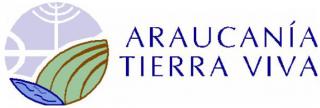April 2003 was the formal start of the “Program for the Environmental Reclamation and Socio-Productive Development of Farmers and Indigenous People” started in the IXth Region of Chile, known as the Araucania. The program is now better known as “Araucanía Tierra Viva”. The main objective of the program is to contribute to the living conditions, necessary to reclaim, preserve and use the natural resources, within the framework of sustainable development of farmer and indigenous families. The program set out to be innovative in their training methodologies, as these methodologies emphasize experience and knowledge of the people, as a main source of learning.
Humberto van der Zel, co-Director of the program, invited Willem van Immerzeel to help introduce the methodology Pachamama Raymi, from the very beginnings of the program. Araucanía Tierra Viva decided to use Pachamama Raymi for their program aimed at reclamation of natural resources (see: rules & regulations), for the environmental and intercultural education program and to stimulate and improve small rural family enterprises (see: rules & regulations).
During the closing seminar of Araucanía Tierra Viva (October 2007), Dr. Jerónimo Molina Ávila, Regional Director of the Regional Technical Cooperation Service (SERCOTEC), announced that Pachamama Raymi would be used nationally. This happened after having used it successfully to stimulate small family businesses in the IX Region of Chile. SERCOTEC is part of the CORFO. Its goal is to aid initiatives and improve competitiveness of micro and small enterprises, and to strengthen management capacity of the entrepreneurs. (See MIDEPLAN)
A new name for Pachamama Raymi was created in Chile: “Learning from the Best”, reflecting probably the main idea of Pachamama Raymi.




